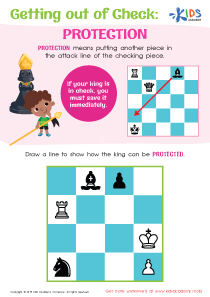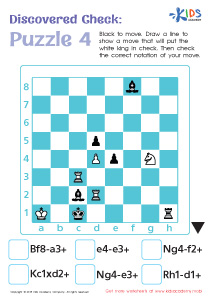Memory enhancement Chess Worksheets for Ages 4-6
3 filtered results
-
From - To
Discover our "Memory Enhancement Chess Worksheets" designed for children ages 4-6! These engaging activities combine the fun of chess with important memory-boosting exercises, perfect for young learners. Our worksheets introduce chess pieces and rules while promoting cognitive skills, including focus and recall. Each worksheet features colorful illustrations and varied challenges to keep your little ones entertained and learning. Ideal for home or classroom use, these hands-on materials foster critical thinking and strategic planning through play. Help your child develop essential memory skills while enjoying the timeless game of chess. Start their journey to becoming mini chess masters today!
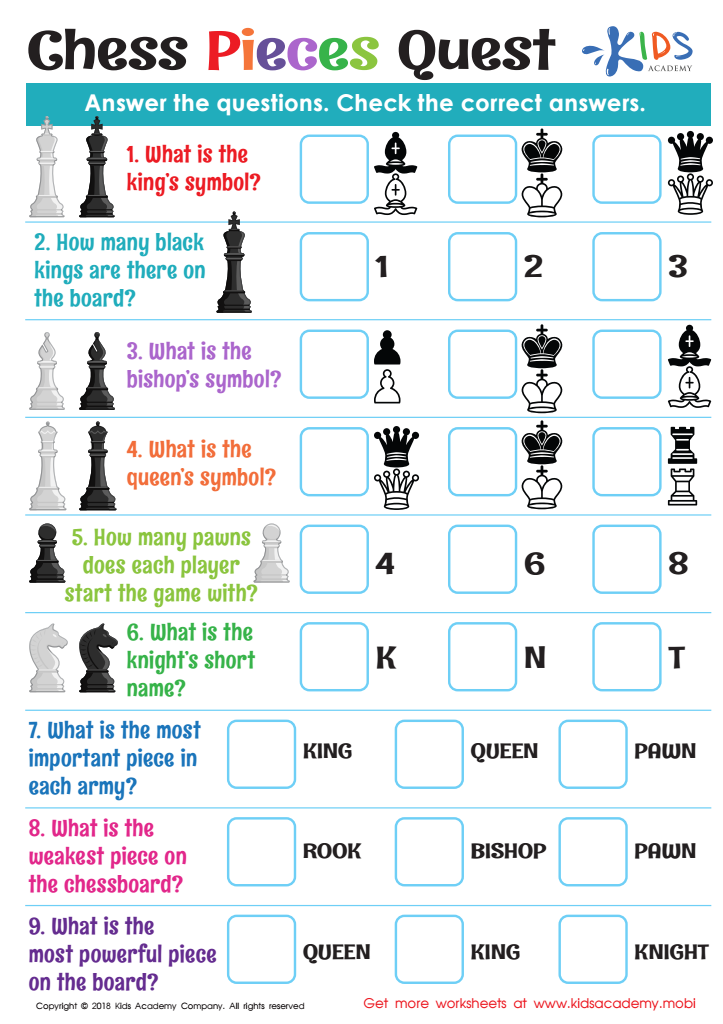

Chess Pieces Quest Worksheet
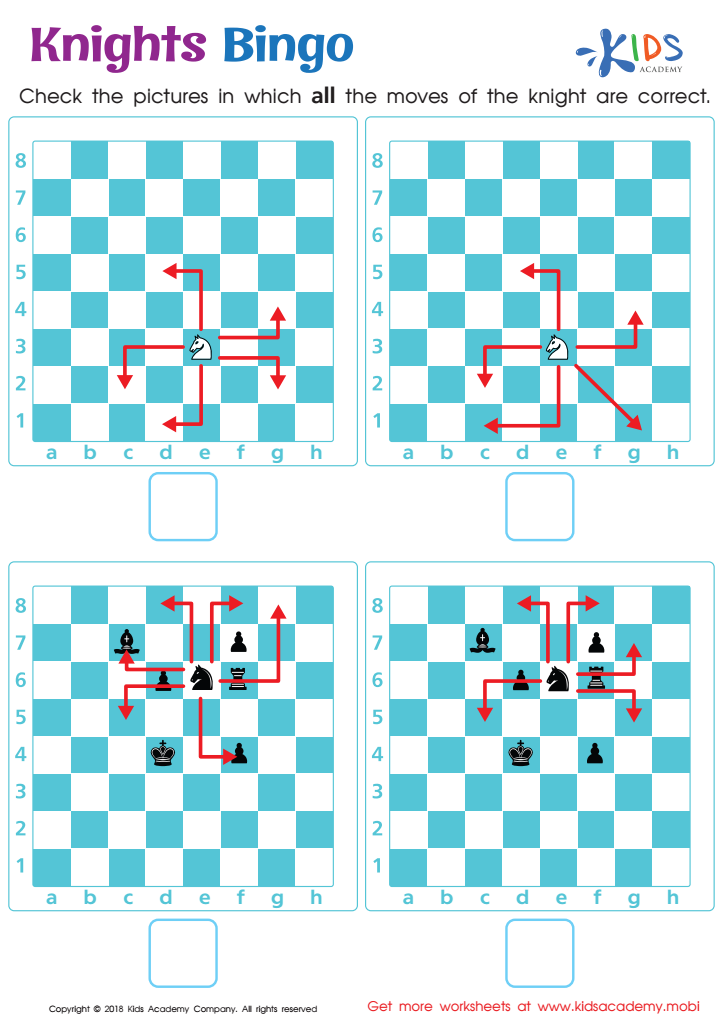

Knights Bingo Worksheet
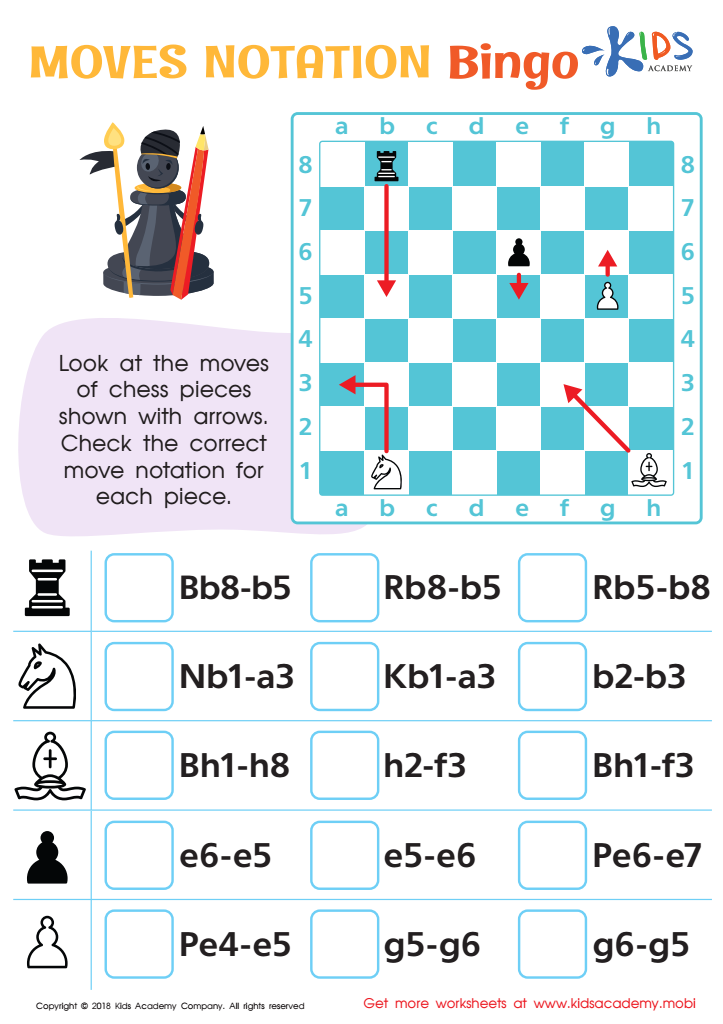

Moves Notation Bingo Worksheet
Memory enhancement through Chess for ages 4-6 is crucial for both parents and teachers to consider due to its profound cognitive benefits. At this developmental stage, children are in a crucial period for building foundational cognitive skills. Chess challenges young minds to remember sequences, recognize patterns, and think ahead, all of which significantly boosts memory retention.
Engaging children in Chess can sharpen their concentration, improving their ability to focus on tasks. The game's structured environment teaches patience and critical thinking, as children learn to weigh consequences of their moves. In addition, by recalling previous games, children enhance their memory skills, which can help them in other academic pursuits.
Moreover, Chess promotes social skills through interaction with peers, enhancing emotional intelligence while fostering teamwork and sportsmanship. It creates a strong bond between parents, teachers, and children as they are engaged in these enriching activities together. As a low-pressure, enjoyable, and intellectually stimulating game, Chess lays an excellent foundation for lifelong learning. Installing game balances seriousness with fun, making learning more attractive, ultimately ensuring strong cognitive and social development in early childhood.
In conclusion, fostering memory enhancement through Chess is an essential investment in a child's overall growth, supporting their academic journey.

 Assign to My Students
Assign to My Students








